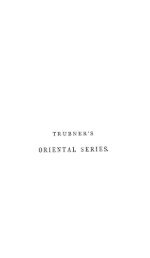Untitled
Untitled
Untitled
You also want an ePaper? Increase the reach of your titles
YUMPU automatically turns print PDFs into web optimized ePapers that Google loves.
134<br />
*<br />
<<br />
"V (<br />
NOTES ON THE THIRD DISCOURSE<br />
r<br />
in tempeVament, one finds<br />
constantly Neptune and the Moon predominant<br />
in the horoscope. But it is of course impossible to suppose<br />
( that the Arabian astrologers had any clue to the planet Neptune. The<<br />
'<br />
'<br />
of Fortune is merely the translation Of the Latin Pars Fortunae.<br />
fart<br />
I cannot account for the origin of the idea, which seems quite<br />
fantastic.... o I<br />
"The Ascendant is the degree rising "at birth; i.e., at sunrise the sun<br />
would be on the ascendant. The '<br />
Lord of the Ascendant '<br />
is the planet<br />
that rules the ascending sign of the Zodiac. The two most important<br />
positions in the horoscope are the ascendant and the mid-heaven, and<br />
any planets here are considered more powerful than any others. 1 he<br />
Ascendant has special relation to the individual, and the mid-heaven to<br />
the fortune."<br />
(Extract from third letter.}<br />
"I am sorry do have kept your proofs so long, but I have been<br />
a good deal away from the office lately, and consequently my work has<br />
got into arrears. c<br />
" With regard to the 'Part of the Unseen,' this is evidently something<br />
kindred in nature to the '<br />
Part of Fortune,' and as the Part of Fortune<br />
{pars fortunae} is always so called by astrologers, I think it would be<br />
'<br />
well to use the expression Part '<br />
and not '<br />
Share.' I have not yet<br />
discovered what the 'Part of the Unseen' is. actually It obviously<br />
cannot be the opposite position to that of the 'Part of Fortune,' as<br />
I see that in one instance cited<br />
tion on the Ascendant."<br />
t<br />
in your proofs the two are in conjunc-<br />
'<br />
Note XXV. 'Umar-i-Khayyam.<br />
(Text, pp. 63-4, 65; Persian notes, pp. 209-228.)<br />
1 Abu'1-Fath 'Umar ibn Ibrahim al-Khayyami, commonly<br />
called 'Umar (or 'Omar) Khayyam, is so much more celebrated in<br />
the West, especially in England aud America, than in the East that<br />
Mirza Muhammad has, for the benefit of his own countrymen, for whom<br />
he is primarily writing, added a very long note on l<br />
his biography, 'the<br />
Sources of our information about him, and the history of the "Omar<br />
Khayyam Club" founded in London in his honour in 1892. The<br />
information contained in this note is mainly derived from P.rofessor<br />
Valentin Zhukovski's masterly article on the "Wandering Quatrains" 01<br />
'Umar-i-Khayyam, which appeared in the Festschrift published in 1897 at<br />
St Petersburg in honour of the late Baron Victor Ro'sen,'by eleven of his<br />
pupils, and entitled, in allusion to his Christiah name, al-Muzaffariyya.<br />
This article, written in Russian, was translated by Sir E. Deni^on Ross<br />
and published in the J.R. A. S. for 1898 (vol. xxx, pp. 349-366), andreproduced<br />
in its essentials by him in Methuen's edition of FitzGerald's<br />
Quatrains, and by me in vol. ii of my Literary History of Persia,<br />
It is therefore sufficient to summarize here the information<br />
pp. 246-9.<br />
which can be found in greater detail in those places.<br />
(<br />
<<br />
<<br />
l








![La religione di Zarathustra nella storia religiosa dell' Iran [microform]..](https://img.yumpu.com/15970820/1/151x260/la-religione-di-zarathustra-nella-storia-religiosa-dell-iran-microform.jpg?quality=85)


